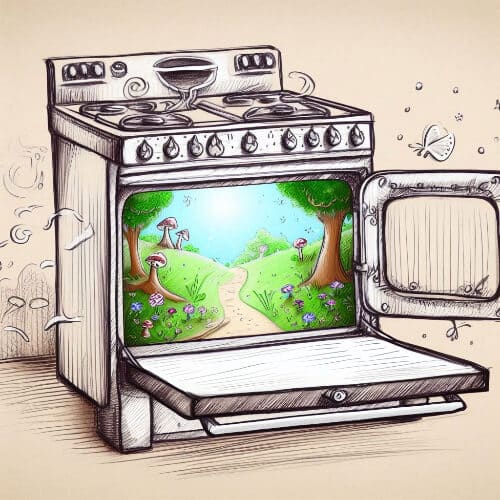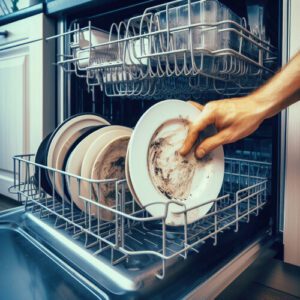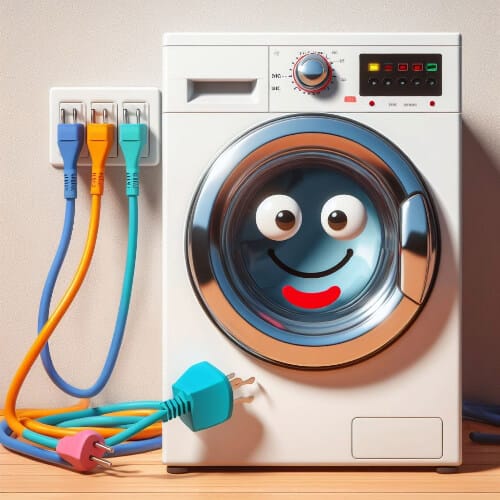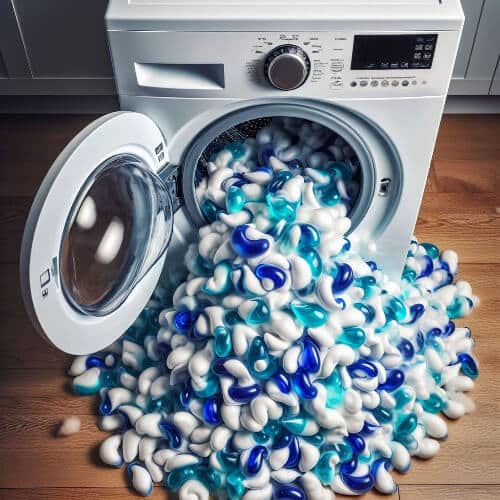Blog

Lots of people have this idea that microwaves are risky because they emit harmful radiation. Well, let’s clear that up! The radiation microwaves use is a type called non-ionizing radiation, and it’s not strong enough to change anything in our bodies, like atoms or molecules. Microwaves are cleverly designed to keep this radiation inside the cooking chamber, so it can’t harm us.
Imagine you’re reheating your tasty leftovers. That microwave of yours is doing a great job, and it’s not putting you in any danger. It’s more like a helpful friend than anything else. So, next time you use your microwave, feel at ease—there’s no need to worry about your health.
Now, here’s a little tip: try not to stand right in front of the microwave when it’s working. While it’s perfectly safe to use, standing too close isn’t necessary. Give it some space, and you’re good to go!
The key is understanding that microwaves are made with your safety in mind. They’re here to make your life easier, not to cause problems. So, embrace your microwave as the handy kitchen companion that it is. Trust it to warm up your meals without any health concerns. It’s a simple and wonderful invention that adds convenience to your daily routine. Now, go ahead and enjoy your microwave-cooked meals with peace of mind!

Ever heard that you should rinse your dishes thoroughly before tossing them into the dishwasher? Let’s debunk that common belief! Contrary to what many think, modern dishwashers are super efficient and don’t need your dishes to be spotless before they do their magic.
In fact, giving your dishes a full pre-rinse might actually be wasting water and energy. The secret lies in just scraping off the excess food. You don’t have to go overboard with rinsing. Your dishwasher is like a kitchen superhero, ready to tackle those dirty dishes effortlessly.
So, the next time you load up your dishwasher, remember that a light pre-rinse is all it takes. Trust in the technology designed to make your life easier. By letting your dishwasher handle the heavy lifting, you not only save time but also contribute to a more sustainable approach by reducing water consumption. It’s a win-win situation, and your dishes will come out sparkling clean without the extra effort.
Think of your dishwasher as your kitchen assistant, diligently working to make your chores simpler. Embrace the convenience of modern appliances, and say goodbye to unnecessary pre-rinsing rituals. It’s time to let technology do what it does best—making our lives more comfortable and efficient. So, go ahead, load up those dishes, and let your dishwasher shine!

Did you ever think that when your home appliances are on standby mode, they’re not using any power? Let’s clear up this common misunderstanding! Many people believe that once they switch off their devices or put them on standby, they’re not drawing any electricity. Well, that’s not entirely true.
In reality, appliances in standby mode still consume energy. It’s what experts call “phantom” or “vampire” energy consumption. Leaving devices plugged in, thinking they’re not using power, can contribute to a sneaky increase in your energy bills.
Here’s a simple tip: unplug chargers, turn off electronics, and consider using smart power strips. These smart strips help minimize standby power usage, which not only saves energy but also puts some extra money back in your pocket. It’s a small change that makes a big difference in both your electricity usage and your wallet.
So, the next time you’re done using a device, give it a break. Unplug it or turn it off completely. Your appliances might be on standby, but your energy savings won’t be! Embrace these simple habits, and you’ll be on your way to a more energy-efficient and cost-effective home. It’s a win-win for both your wallet and the environment!

Have you ever thought that washing dishes by hand is always better for saving water than using a dishwasher? Let’s uncover the truth behind this widespread belief! Many people think that hand washing is the ultimate water-saving method, but it turns out that might not be the case.
In reality, modern dishwashers are built to be super smart about how they use water. They often end up being more efficient than washing dishes by hand. So, if you’re aiming to be water-conscious, here’s a helpful tip: wait until you have a full load before running the dishwasher. This simple act not only conserves water but also ensures that the dishwasher operates in an energy-efficient way.
It’s like having a water-saving superhero in your kitchen! Embrace the efficiency of your dishwasher and let it handle the dirty work. You’ll not only save time but also contribute to a more sustainable approach to water usage. So, the next time you’re debating between hand washing and using the dishwasher, trust your modern appliance to be the water-saving champion it was designed to be. It’s a win-win for both convenience and conservation!

Have you ever thought that dishwashers fill up completely with water during a cleaning cycle? Let’s dispel this common misunderstanding! The belief that dishwashers submerge dishes in a pool of water is not accurate.
In reality, dishwashers are quite clever in their design. They use a pump to circulate water, spraying it onto the dishes and then efficiently draining it out. There’s no need to worry about a pool of water engulfing your dishes. Understanding this process helps dismiss the misconception that dishwashers are wasteful with water.
Trust the design of your dishwasher; it’s built to recycle water throughout the cleaning process. So, the next time you hear someone mention a dishwasher’s water wastefulness, confidently correct them. Your dishwasher is an efficient water recycler, and it’s doing its job just right. Embrace the technology that makes your life easier and your cleaning processes more sustainable.
Ever thought adding extra detergent to your laundry would result in cleaner clothes? Let’s dispel this laundry myth! Contrary to the common belief that more detergent equals better cleaning, reality tells a different story.
Adding excess detergent doesn’t enhance the cleanliness of your clothes; instead, it often leads to residue buildup and can diminish the effectiveness of the wash. Adhering to the recommended amount ensures your laundry comes out just as clean, without wasting extra detergent.
Understanding the correct amount to use not only guarantees the cleanliness of your clothes but also promotes the longevity of your washing machine. So, the next time you consider pouring in extra detergent, remember, when it comes to laundry, less is more.


If you have concerns about your appliance’s performance, contact the professionals at ARNI Services, Appliance Repair, for a thorough diagnosis and repair service. – you can’t put a price tag on peace of mind.